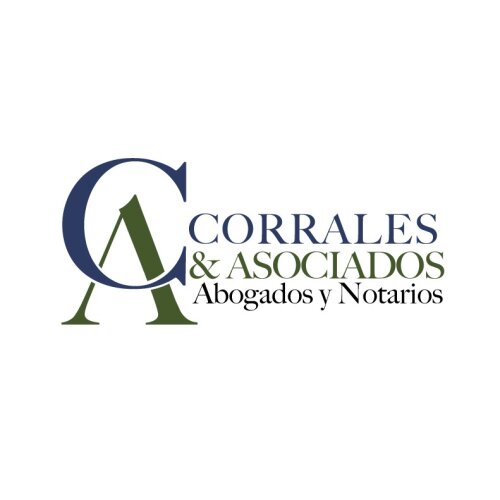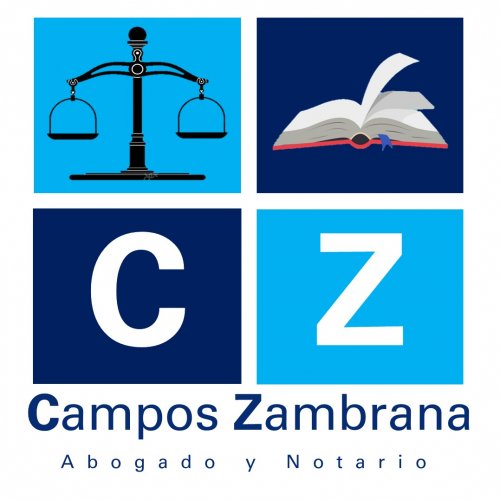Best General Litigation Lawyers in Nicaragua
Share your needs with us, get contacted by law firms.
Free. Takes 2 min.
Or refine your search by selecting a city:
List of the best lawyers in Nicaragua
About Litigation Law in Nicaragua
Litigation in Nicaragua refers to the legal process of resolving disputes by filing and responding to complaints in court. It encompasses a broad range of issues from civil suits to criminal defenses. The Nicaraguan legal system operates under civil law traditions, and litigation often involves navigating complex procedural rules and nuances.
Legal proceedings in Nicaragua can be challenging due to language barriers, the specificity of local legal customs, and a structured court system. Therefore, understanding litigation here requires familiarity with Nicaragua’s laws and judicial processes.
Why You May Need a Lawyer
There are several common scenarios where individuals and businesses might require the assistance of a litigation lawyer in Nicaragua:
- Contract Disputes: Issues arising from the interpretation or breach of contractual agreements.
- Property Conflicts: Legal disputes over property ownership or title issues.
- Family Law Matters: Divorce, child custody, and inheritance issues that require formal legal intervention.
- Employment Disagreements: Conflicts involving wrongful termination, discrimination, or unpaid wages.
- Criminal Defense: If you are accused of a crime, having legal representation is crucial.
- Debt Recovery: Legal strategies to recover debts owed.
- Personal Injury Claims: Seeking compensation for injuries caused by accidents or negligence.
Local Laws Overview
Nicaragua’s legal system is governed by its Constitution, civil code, and a range of other legislative and regulatory frameworks. Key legal aspects relevant to litigation include:
- Code of Civil Procedure: This code governs how civil litigation is conducted, outlining procedures for filing cases, serving notice, evidence presentation, and appeals.
- Criminal Code and Procedure: Defines criminal offenses and prescribes the procedure for criminal prosecutions, ensuring fair trial rights.
- Constitutional Protections: The Constitution provides a framework for protecting human rights and legal equality, which is pertinent in many legal disputes.
- Commercial Code: Governs business-related disputes and commercial agreements.
Frequently Asked Questions
What should I do if I am served with a legal complaint?
It's essential to seek immediate legal advice to respond appropriately. Ignoring it can lead to a default judgment against you.
How long does it take to resolve a litigation case in Nicaragua?
The duration varies depending on the complexity of the case, court schedule, and whether the case is settled out of court or goes to trial.
Can I represent myself in court?
While it is legally possible to represent yourself, it is generally not advised. Navigating the legal processes can be challenging without professional legal expertise.
What are the costs associated with hiring a litigation lawyer in Nicaragua?
Costs vary considerably based on the lawyer's experience, the complexity of your case, and any additional services provided. Initial consultations may offer clarity on expected fees.
What is the statute of limitations for filing a lawsuit?
The statute of limitations can vary depending on the type of case. Consult a lawyer to understand the timeframe applicable to your specific circumstances.
How is evidence presented in Nicaraguan courts?
Evidence must be submitted in compliance with rules of admissibility and relevance, often requiring formal presentation via documents, testimony, or expert reports.
Is mediation or arbitration an option in Nicaragua?
Yes, alternative dispute resolution methods like mediation and arbitration are available and can be more expedient than traditional litigation.
What happens if I lose my case?
If you lose, you may have the option to appeal the decision. Discuss this with your lawyer to understand the viability and implications of an appeal.
Will my case be heard by a judge or jury?
In Nicaragua, civil cases are typically heard by judges, as the jury system is not part of the civil procedure. Some criminal cases may involve jury trials.
What language will the proceedings be conducted in?
The official language of court proceedings in Nicaragua is Spanish. If necessary, interpretation services should be arranged for non-Spanish speakers.
Additional Resources
Those seeking legal advice in litigation may consider reaching out to the following resources:
- The Nicaraguan Supreme Court: Provides general information on legal procedures and resources for legal practitioners.
- Bar Associations: Offer directories and referrals to qualified legal professionals.
- Nicaragua Legal Assistance Clinics: May offer free or sliding scale services for those with limited financial resources.
- Ministry of Justice: Oversees the administration of the legal system and may provide guidance on court processes.
Next Steps
If you need legal assistance in litigation, consider the following steps:
- Identify the Nature of Your Case: Clearly define your legal issue to help in finding the right lawyer.
- Consult with Legal Professionals: Seek recommendations, research potential lawyers, and book consultations to assess their suitability for your case.
- Prepare Documentation: Gather any relevant documents and evidence pertaining to your case before meeting with a lawyer.
- Discuss Costs and Fees: During initial consultations, inquire about costs to ensure alignment with your budget.
- Follow Legal Advice: Once you engage a lawyer, follow their guidance and communicate openly to help ensure the best possible outcome for your case.
Lawzana helps you find the best lawyers and law firms in Nicaragua through a curated and pre-screened list of qualified legal professionals. Our platform offers rankings and detailed profiles of attorneys and law firms, allowing you to compare based on practice areas, including General Litigation, experience, and client feedback.
Each profile includes a description of the firm's areas of practice, client reviews, team members and partners, year of establishment, spoken languages, office locations, contact information, social media presence, and any published articles or resources. Most firms on our platform speak English and are experienced in both local and international legal matters.
Get a quote from top-rated law firms in Nicaragua — quickly, securely, and without unnecessary hassle.
Disclaimer:
The information provided on this page is for general informational purposes only and does not constitute legal advice. While we strive to ensure the accuracy and relevance of the content, legal information may change over time, and interpretations of the law can vary. You should always consult with a qualified legal professional for advice specific to your situation.
We disclaim all liability for actions taken or not taken based on the content of this page. If you believe any information is incorrect or outdated, please contact us, and we will review and update it where appropriate.
Browse general litigation law firms by city in Nicaragua
Refine your search by selecting a city.












